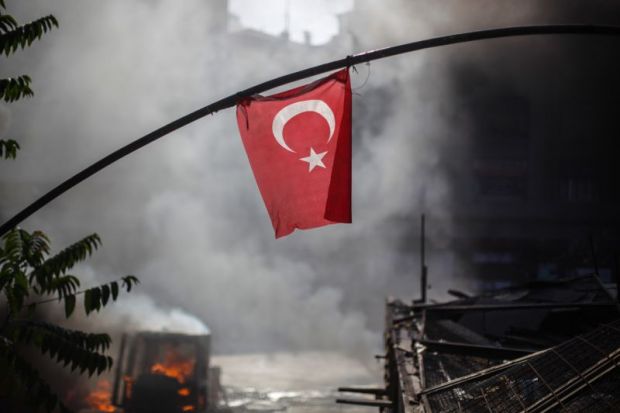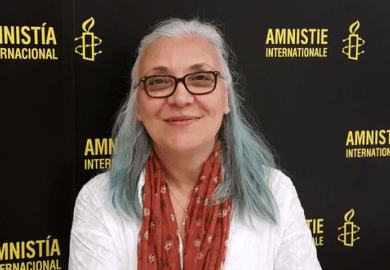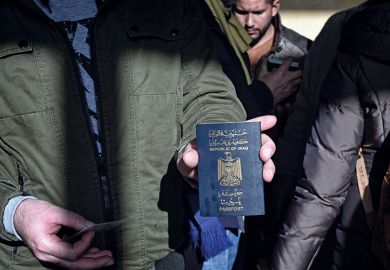European universities that have been affected by the series of recent terrorist attacks on the Continent have been forced to take their internationalisation strategies “back to basics”, a conference speaker said.
Burcu Sarsilmaz Coşan, director of international programmes at Koç University in Turkey, said that her institution used to attract about 450 exchange students annually, but the figure plummeted by 75 per cent in the 2016-17 academic year in the wake of several terrorist attacks in the country during the previous year.
“Now we are going back to basics,” she told Times Higher Education. “We are trying to reassure our partners that everything is OK, that Turkey is secure.”
Last year, several partner universities stopped sending their students to Koç but still accepted Koç students at their institutions, according to Ms Coşan, who spoke on a panel exploring how to manage study-abroad programmes in the era of global terrorism, at the annual conference of the European Association for International Education on 14 September.
“But over the past couple of months, we have been receiving emails from some of our partners in the US telling us that they will not be accepting our students any more,” she said.
Koç is now shifting its focus for student exchange partnerships to the Asia-Pacific region in the hope that institutions there will be more willing to work with Turkey, she added.
Ms Coşan argued that a series of recent Islamist terrorist attacks, including in France, the UK and Spain, was having a broader impact. She said that whereas European universities “used to talk about how we can deepen our relationships” with other countries and universities, now the focus had shifted to maintaining or limiting the damage to any partnerships.
Loes Diricks, a staff member for international services at KU Leuven in Belgium, reported similar issues at her university after the 2016 bombing in Brussels.
“We saw an immediate impact in terms of students cancelling. We have an international week for staff exchange, and half the people cancelled,” she said.
Brussels now has the label of a “dangerous destination”, especially in the US, she added.
Register to continue
Why register?
- Registration is free and only takes a moment
- Once registered, you can read 3 articles a month
- Sign up for our newsletter
Subscribe
Or subscribe for unlimited access to:
- Unlimited access to news, views, insights & reviews
- Digital editions
- Digital access to THE’s university and college rankings analysis
Already registered or a current subscriber?






